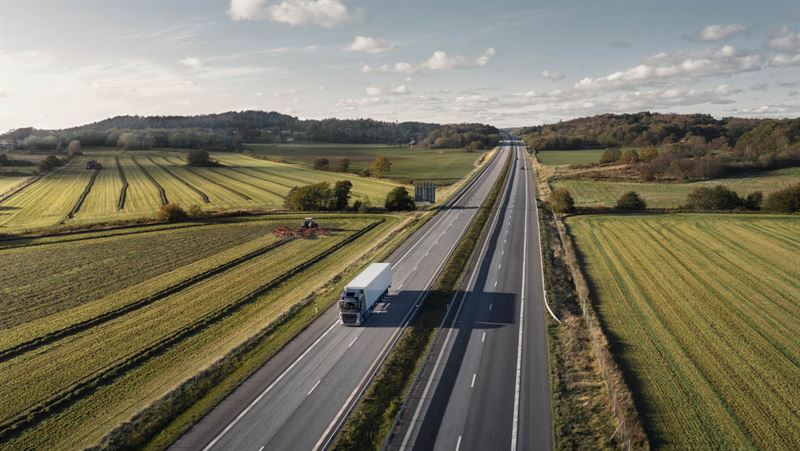We need to talk about the elephant in the room first. Most eco campaigners will agree that less vehicles, not more, has to be the goal. But realistically this is going to take an age. Society is still too wedded to them.
Instead we continue along the road of evolution rather than revolution. EVs are high up there before we get to the tricky question of how the elements are mined, how old batteries are disposed, cars charged etc. It’s a whole narrative all of its own.
But fundamentally it is widely accepted that this is far less bad than petrol and diesel chugging dirty emissions.
So what else can be done? What about the vehicles themselves? Already producers have been experimenting with lighter weights, more efficient supply chains and more.
Now Volvo, though, are upping the ante. They are to begin work on a new range of concept vehicles they say will come from fossil-free steel.
Fossil-free what, you say? We’ll come to that.
Volvo Group have signed a deal with steelmakers SSAB for the research, development, production and commercialisation of their new generation of vehicles using components made from steel created using hydrogen.
WHAT IS FOSSIL-FREE STEEL?
According to SSAB’s website fossil-free steel is a process that ditches traditional methods of steelmaking for those that don’t harm the environment in the same manner. They define that as being:
- Fossil-free steel is steel produced using HYBRIT technology
- A premium product without a fossil CO2 footprint. This means no fossil CO2 emissions during production and that we use fossil-free sponge iron
- Using fossil-free sponge iron as external input material, only internal scrap from fossil-free steel production, fossil-free electricity and no fossil fuels
- SSAB say: Conversion to fossil-free steel is driven by customer demand, where end-users are increasingly seeking sustainable materials. As vehicles and other machinery are reducing or eliminating their emissions in use, the materials used in these products will have the main impact on lifecycle CO2 emissions.
“We are determined to be a climate-neutral company by 2050 in line with the Paris Agreement. This means that our vehicles and machines will be emission-free when in operation but also that we will review the materials, like steel, used in our products and will gradually switch to fossil-free alternatives here as well. This is an important step on the road to completely climate-neutral transports,” said Martin Lundstedt, President and CEO at Volvo Group.
Martin Lindqvist, President and CEO at SSAB, added: “We are now taking a giant leap towards an entirely fossil-free value chain all the way to the end customer. Together with Volvo Group, we will start work on the development and serial production of fossil-free steel products. We will work together with our customers to reduce their climate impact while strengthening their competitiveness.
“We are constantly looking at how we can become a more comprehensive supplier of fossil-free steel to customers like Volvo. We see a new green revolution emerging.”
Volvo will start manufacturing the first concept vehicles and machines with steel from SSAB using hydrogen already in 2021. Plans are for smaller-scale serial production to start during 2022 and for a gradual escalation towards mass production to follow.
Volvo and SSAB will also work together in research and development to optimize the use of steel in Volvo’s products with regard to weight and quality. Together, the two companies will develop a number of products of fossil-free steel with the goal of reaching serial production within a few years.
They say newly made fossil-free steel from SSAB will be an important complement to the traditional and recycled steel used in Volvo’s trucks, construction equipment and other products.
Fossil-free steel will be made by a completely new technology using fossil-free electricity and hydrogen. They hope the result will lead to a much lower climate impact and a fossil-free value chain.
HYBRIT TECHNOLOGY
In 2016, SSAB, LKAB (Europe’s largest iron ore producer) and Vattenfall (one of Europe’s largest energy companies) joined forces to create HYBRIT – an initiative that endeavors to change how steelmaking is done. Using HYBRIT technology, SSAB aims to replace coking coal, traditionally needed for ore-based steelmaking, with fossil-free electricity and hydrogen.
The collaboration framework also includes a review of common logistics solutions that can contribute to reducing SSAB’s environmental impact from internal and external transports. The ambition is to use Volvo vehicles that are powered by batteries or fuel cells.
SSAB aims to start supplying the market with fossil-free steel at a commercial scale in 2026. Development of a fossil-free value chain from mine to finished steel products will take place within the framework of the HYBRIT initiative, which SSAB has been driving with LKAB and Vattenfall since 2016.
A pilot plant has been in place since August 2020 and this will soon start to produce smaller volumes of sponge iron made using hydrogen. This steel will be used to make the steel for use in this collaboration.
SSAB says it will cut its CO2 emissions in Sweden by 25% by as early as 2025, through the conversion of the blast furnaces in Oxelösund, Sweden, to an electric arc furnace. Between 2030-2040, their plan is to convert the blast furnaces in Luleå, Sweden and Raahe, Finland to eliminate most of the remaining CO2 emissions.

